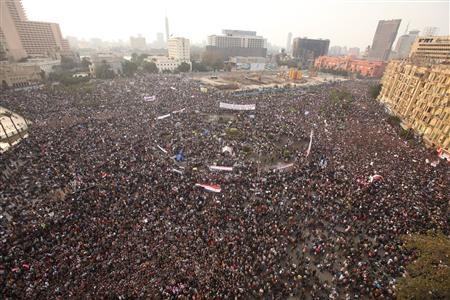Egypt’s largely peaceful ousting of its longtime president might be a template for a flowering of freedom in the Middle East – or, it might be the first act in a slow moving disaster for Egypt and peace in the region.
 Unknown Egyptian Army general amidst celebrating civilians
Unknown Egyptian Army general amidst celebrating civilians
First, on the positive side, the people of Egypt developed some needed sinews of self-governance during their successful 18 day push to remove Mubarak. Also praiseworthy was the restraint displayed by the Egyptian military – a military that has benefited from U.S. training of its officers for some 30 years.
On the cautionary side, the Muslim Brotherhood, while not the initial driver of the protests, remains the most organized and potent single force in Egypt, apart from the military. That the Muslim Brotherhood, a radical group in spite of the Director of National Intelligence’s recent assurances, would benefit from early elections is a given. Whether they would be able to earn a governing plurality is an open question.
More difficult will be Egypt’s economic challenges. Applying rule of law, rooting out corruption in a society where “baksheesh” is deeply engrained, and managing the rising expectations of Egypt’s large underclass after the battering that Egypt’s economy has sustained will be exceptionally difficult.
It is the economic issue that should concern us the most. Tourism was one of Egypt’s most important economic drivers, with an estimated 14 million visitors expected in 2011 – clearly, that won’t happen. The danger is that a deteriorating economy will erode the ability of the Egyptian military to affect a peaceful transfer power to a civilian government later this year. Further, that the Muslim Brotherhood will gain in prestige as the economy breaks down.
With Egypt’s police and unions now demonstrating in the streets of Cairo for higher pay, but an economy unable to support such demands, the second act of Egypt’s revolution will prove far more difficult to finesse.
COMMENTS
Please let us know if you're having issues with commenting.